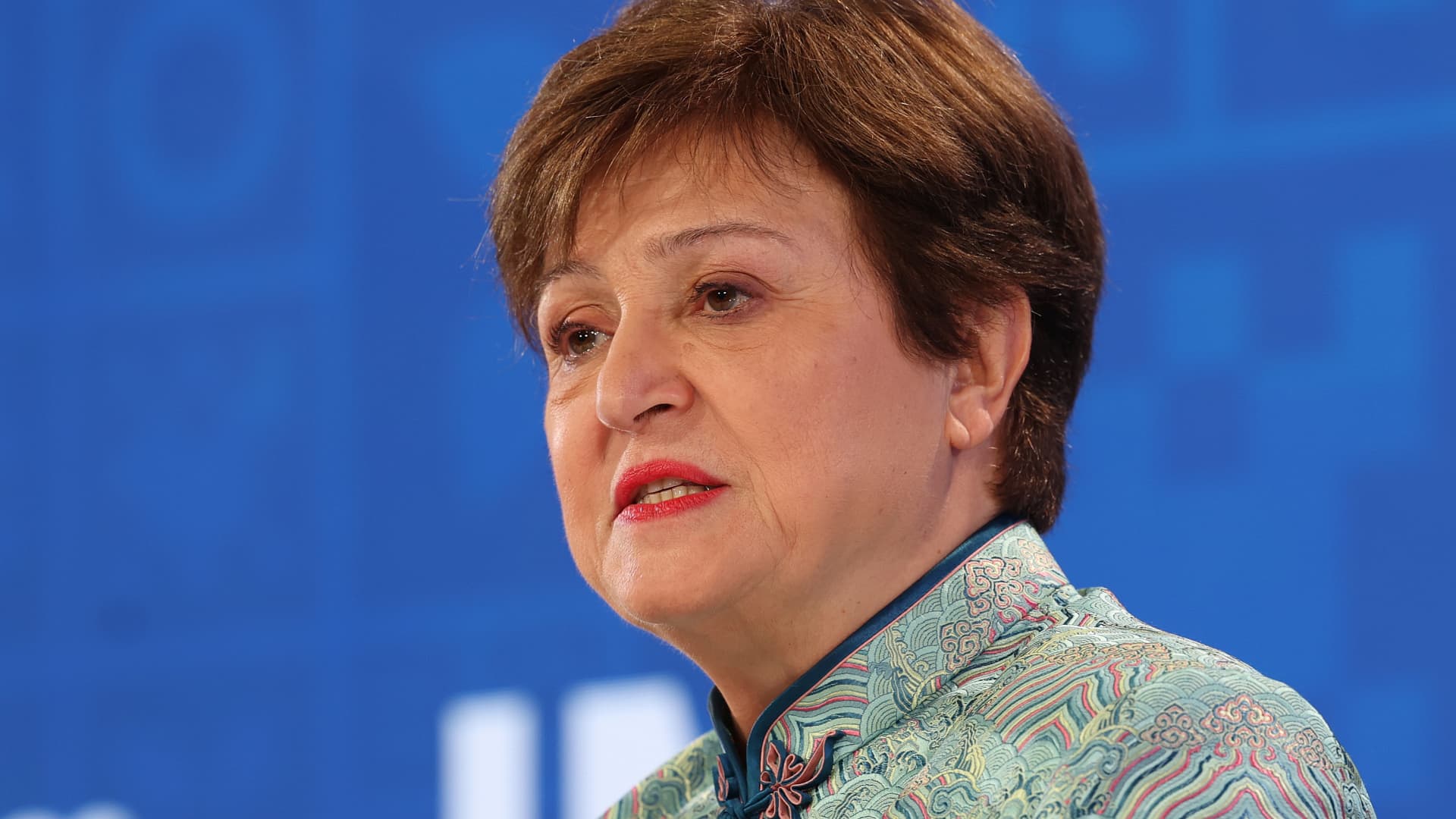Kristalina Georgieva, Managing Director of the International Monetary Fund, at a press conference at IMF headquarters on April 14, 2023.
Kevin Dietsch | Getty Images News | Getty Images
The head of the International Monetary Fund warned that the Russian economy still faces significant headwinds despite the Washington-based institution’s recent growth upgrade.
Russia’s economy has proven surprisingly resilient in the face of waves of Western sanctions in the nearly two years since the full-scale invasion of Ukraine began.
In late January, the International Monetary Fund more than doubled its forecast for the country’s economic growth this year, raising it to 2.6% from 1.1% in October.
Nevertheless, IMF Managing Director Kristalina Georgieva sees further problems facing the country with around 145 million inhabitants.
Speaking to CNBC’s Dan Murphy at the World Governments Summit in Dubai, Georgieva described what she believes is driving Russia’s growth and why the forecast numbers don’t tell the whole story.
“It shows us that this is a war economy in which the state – which, as we remember, had a very large buffer built up over many years of fiscal discipline – is investing in this war economy. If you look at Russia today, production is increasing, [for the] Military, [and] consumption decreases. And this is pretty much what the Soviet Union used to look like. High production level, low consumption.”
Russian defense spending has skyrocketed since the start of the war. Last November, Russian President Vladimir Putin approved a state budget that increased military spending to around 30% of government spending, an increase of nearly 70% from 2023 to 2024.
Defense and security spending is expected to account for around 40% of Russia’s total budget spending this year, according to a Reuters analysis.
At the same time, however, according to estimates by exiled scientists last October, more than 800,000 people left Russia. Many of those who have fled are highly qualified workers in fields such as IT and natural sciences.
“I actually think that the Russian economy is facing very difficult times due to the exodus of people and the limited access to technology that comes with the sanctions,” Georgieva said.
“Although that number seems like a good number, there’s a bigger story behind it, and it’s not a very good story.”
Source link
2024-02-12 10:16:24
www.cnbc.com









